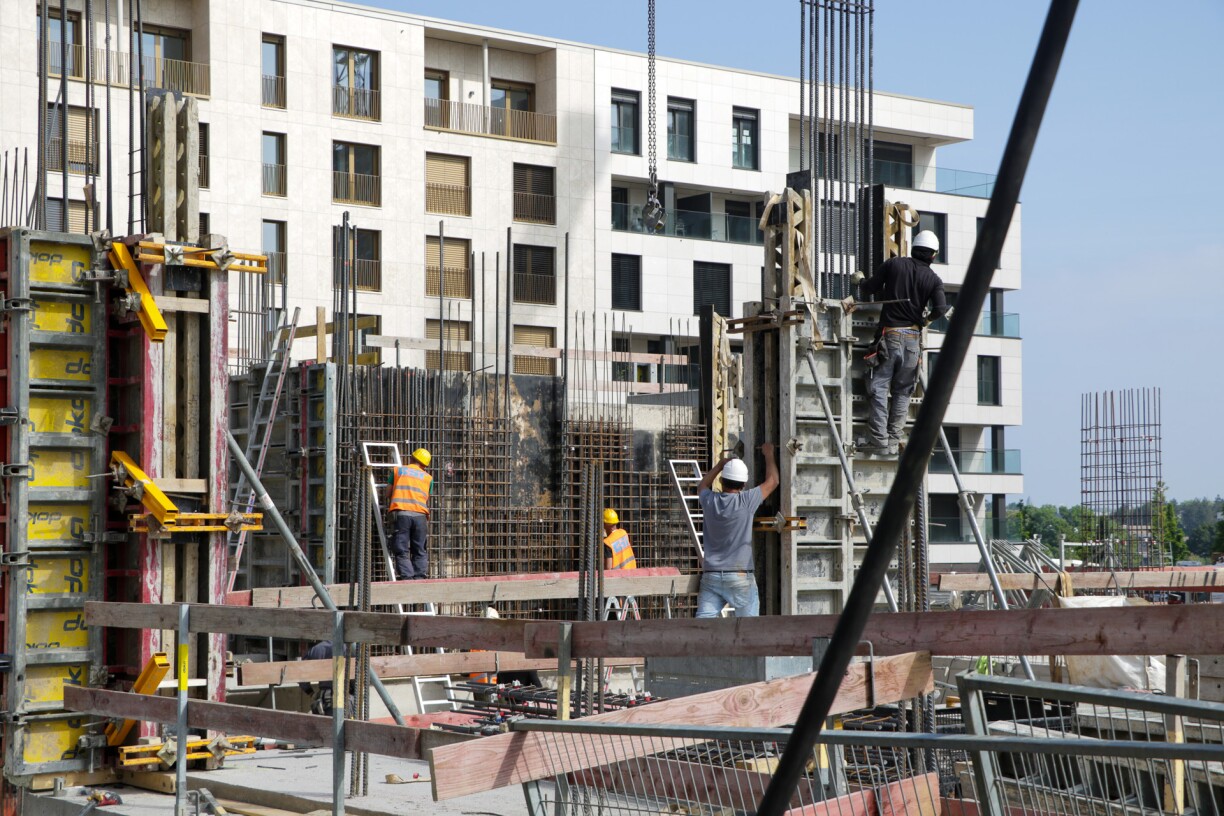
The Luxembourg real estate market presents a contrasting picture as government tax measures approach their expiration this summer. While existing properties have seen renewed activity, the new-build sector continues to struggle despite substantial 2024 incentives.
Market analysts describe the current situation as a pivotal moment for Luxembourg’s housing sector. While the existing property market has responded well to tax incentives, new construction remains well below demand levels.
“Rental investment remains relatively unattractive,” said Pierre Clément, director of Nexvia, in an interview with our colleagues from RTL Infos. And this is despite a wide range of incentives that have been on offer to investors for over a year now (increased tax credit on notarial acts, accelerated depreciation, etc.). “In cities where property is expensive, the question of yield is not always obvious”, said Soufiane Saadi, CEO of the atHome group. Rising fixed rates in recent months have further exacerbated the situation.
The good news is that the existing property market is doing much better. Existing properties recorded over 1,350 transactions in Q4 2024 - described as “a record” by Nexvia. Activity has remained stable in Q1 2025, though below the late-2024 peak, according to Clément, who is counting on a “boost effect” from the impending 30 June deadline for tax incentives.
However, observers question what will follow. In fact, the timid recovery seen at the end of 2024 in new-builds has only benefited a small number of developers with a long-established presence in Luxembourg, according to the director of Nexvia. Julien Licheron, an expert at the Housing Observatory, emphasised in this context that the 400 transactions recorded in the fourth quarter of 2024 remain well below the usual averages. “It’s half as many” as before the crisis, he confirmed.
According to Clément, most recent property acquisitions involved nearly completed units purchased by owner-occupiers. “We’ve fallen so far behind in housing construction that the tax aid package should be extended until new-build activity stabilises”, he argued.
This position finds support from Licheron, though he acknowledges reservations about using demand-side subsidies to stimulate supply. “The immediate priority must be increasing supply through all available means”, Licheron emphasised. The expert argued that without significant new supply, price relief remains unlikely - a concern underscored by recent price increases in late 2024.
Data from the atHome group confirms this upward pricing trend, which CEO Soufiane Saadi attributes to Luxembourg’s persistent “structural housing deficit”. The situation has been exacerbated by two years of sluggish construction activity, though the experts caution against overstating price volatility concerns. They argue that rates will not fall back to the levels seen just a few years ago.
“During this crisis, we have seen that prices in Luxembourg could fall. At a certain point, if the loss of purchasing power is too great, there will simply be no way to buy. We will have the same problem if they [prices] go up again. Purchasing power cannot go through the roof”, Licheron explained. He emphasised the “crucial importance” of interest rates on the Luxembourg property market.
However, this raises the question: How can the situation regarding new-builds be resolved when the government appears to have already moved on and the Prime Minister has explicitly ruled out further extensions for existing subsidies?